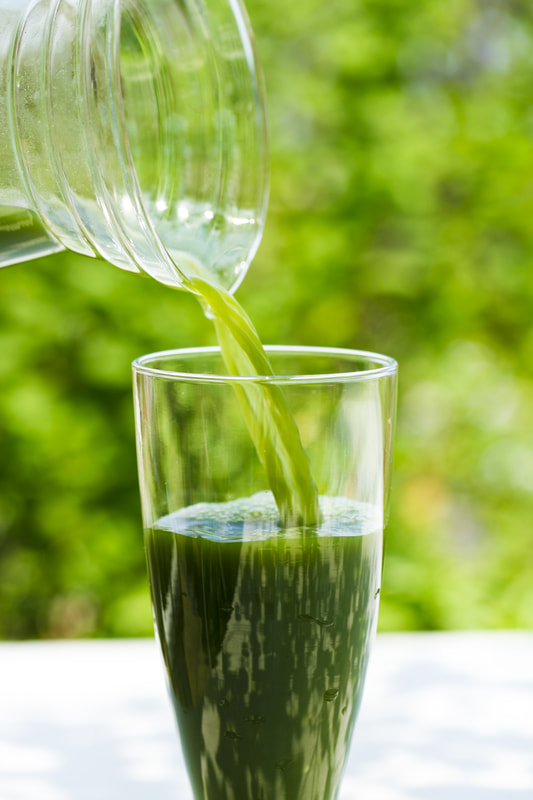 In today’s fast-paced digital age, the way we consume information can significantly influence our mental and emotional well-being. Have you ever stopped to consider why social media affects you so deeply? The truth is, it’s not just a distraction—it's a reflection of your thoughts, desires, and aspirations. Every scroll, every like, and every share echoes who you are and what you care about. The Dopamine Connection When we engage with social media, we’re often met with a flood of dopamine—a chemical that plays a major role in pleasure and motivation. Each notification, each new post, can send a rush of this feel-good hormone coursing through our veins. But what if we could harness this mechanism for good? What if we could tailor our digital experiences to create a positive feedback loop that aligns with our goals and enhances our wellness? Crafting Your Digital Vision Board Imagine transforming your digital landscape into a powerful vision board. You have the ability to curate what you see, hear, and engage with online. By doing so, you can create an environment that not only reflects your aspirations but also propels you toward them. Here’s how you can start: 1. Follow the Right Mentors: Seek out content creators and mentors who embody the success and lifestyle you aspire to. Whether it’s in health, business, or personal development, surround yourself with voices that inspire you to grow. Their journeys can provide you with the insights and motivation you need to pursue your own goals. 2. Be Selective with Subscriptions: Just as you would with a physical vision board, be intentional about what you subscribe to. Unfollow accounts that drain your energy or promote negativity. Instead, fill your feed with uplifting content that aligns with your vision for the future. 3. Curate Your Shopping Habits: Shopping is not just about acquiring possessions; it’s a reflection of your values and aspirations. Choose to invest in items that resonate with your goals and enhance your quality of life. Whether it’s a book on personal development or a workout program, let your purchases reflect your commitment to your future self. 4. Engage with Your Tribe: Community matters. Connect with like-minded individuals who support your journey. Engage in discussions, share experiences, and uplift one another. This sense of belonging can significantly impact your mental wellness and keep you motivated. The Power of Intentional Consumption Changing what you feed your mind can lead to quick and profound results. By curating your digital environment, you create a space where positivity and growth flourish. Algorithms can work in your favor; they can be your allies in this journey if you train them to reflect your true desires. The more you engage with the content that resonates with your goals, the more similar content will appear. This creates a feedback loop of positive reinforcement that can keep you focused on your path to success. Conclusion: Your Future Awaits In a world where digital experiences shape our realities, it’s time to take control of your narrative. A digital vision board can serve as a powerful tool for alignment between your goals and your wellness. By mindfully curating your online interactions, you can create a supportive ecosystem that propels you toward the life you envision. So, take a moment to reflect on your digital footprint. Are you feeding your mind with the right content? Are you surrounding yourself with influences that uplift you? If not, it’s time to make a change. Empower yourself to create a digital environment that embodies your aspirations, and watch as your reality begins to transform. Your future self is waiting—let’s make sure you’re ready for it!
0 Comments
 Embracing Freedom: Reflections on Love and Self-Discovery This Valentine’s Day Yesterday marked Valentine’s Day, a day often filled with heart-shaped everything and an onslaught of Hallmark-inspired messages. As I navigated through the sea of pink and red, I found myself reflecting on my own journey—a journey that has led me to a profound sense of excitement about the future, fueled by my newfound freedom. My relationship with love has always been complex. Growing up as the only divorced, non-practicing Catholic in a family where my parents celebrated 65 years of marriage, I often felt like an outlier. For years, I struggled to understand my feelings towards relationships. While many find comfort and stability in monogamy, I began to see it as a potential limitation. Now, I fully acknowledge that this perspective isn’t universal—many thrive in committed partnerships, and that’s perfectly okay. However, for me, envisioning a future with just one person often felt like peering into a narrowing tunnel, closing in around us both. Love is a deep, multifaceted emotion for me, and I often find myself contemplating what’s best not just for me, but for my partner as well. I’ve come to realize that being in a long-term relationship sometimes dulled my spirit. I didn’t like the person I became; I felt stagnant and uninspired. Through deep contemplation, I discovered that I could create a vision for my life—one filled with happiness, success, and peace—by embracing the freedom of choice. Now, I treat every day like a spa day, prioritizing my well-being in every way possible. I listen to my body, mind, and spirit, responding to their needs with care. I surround myself with beauty—objects, experiences, and people that resonate with my soul. I’ve dedicated time to studying and improving every aspect of my life, from nutrition and fitness to mindfulness and relationships. Tracking my progress has become a source of joy and motivation. Setting boundaries has also become essential. I’ve learned to be selective about where I invest my energy, ensuring that it aligns with my values and aspirations. This intentional approach to life has transformed my perspective on love and relationships. I’m no longer confined by societal expectations or norms; instead, I’m free to explore what brings me genuine fulfillment. So, as I reflect on this Valentine’s Day, I celebrate not just romantic love but the love I have for myself and the life I’m creating. It’s a life filled with possibilities, where I have the freedom to choose my path and embrace the beauty that surrounds me. Here’s to the journey of self-discovery, and to finding joy in every moment!  After years of navigating relationships without a clear strategy, I've decided to take a more intentional approach. After a decade of marriage, 18 years of supporting a recovering alcoholic husband and dealing with active alcoholics, therapy sessions, single parenting, and two decades of dating, I've reached a profound realization: relationships aren't about the other person; they're about us. This truth, while not particularly romantic or idealistic, is fundamental. We tend to attract individuals who highlight our own challenging traits. This phenomenon can be understood through the IMAGO concept, which suggests: "What we unconsciously attract in a partner embodies both the positive and negative traits of our parents that impacted (triggers) us the most." With this in mind, I reflected on my parents. My father was charming, handsome, fun, aloof, and often emotionally unavailable. My mother was brilliant, controlling, unpredictable, and carried a poverty mindset and victim mentality. Unsurprisingly, I found myself drawn to men who embodied these same characteristics: handsome, charming, fun, aloof, brilliant, controlling, and unpredictable. The key phrase here is "that triggered you most." In my case, I was particularly attracted to charming and controlling types. If you haven't experienced this combination, I wouldn't recommend it. However, it certainly shed light on many of my past relationships. Moreover, we often attract partners who reflect the qualities we need to develop within ourselves. For me, this meant confronting my struggles with confidence, my desire for validation, and my ability to manage my emotions. Recognizing these patterns has been a crucial step in my journey toward healthier relationships. So, consider this theory the next time you are confused about your choices in relationships. It has nothing to do with them and everything to do with you.  I've always had a keen interest in healthy habits, but when a chronic issue unexpectedly struck, my concern deepened. After my annual thermogram, I was informed that there was significant inflammation in my left jaw. Weeks later, I began to experience pain that seemed to migrate—first to my throat and what felt like my lymph nodes, and then to my left arm, which developed strange pain. I found myself relying on Motrin constantly; it alleviated the pain but only heightened my anxiety. This all unfolded before the onset of COVID-19, so I couldn't attribute my troubles to that. I knew something was seriously wrong with my body. Then, as the pandemic unfolded, my health took a further hit. I faced the devastating loss of my business, my father passed away, and I found myself quarantined with the wrong guy. In a moment of weakness, I started smoking again after 26 years of abstinence. My health was plummeting. In a desperate attempt to understand my condition, I underwent a series of tests: CT scans, MRIs, blood work, additional thermograms, and evaluations of my heart, lungs, and bones. The final straw was a visit to an ENT specialist to check for throat cancer, a diagnosis I had convinced myself I probably had. After two long years of uncertainty, I received the shocking news: there was absolutely nothing physically wrong with me. Frustrated yet determined, I decided to take control of my health. Regardless of any diagnosis, I knew I needed to make changes. I had been a vegetarian for 20 years and regularly juiced, but I realized I needed to elevate my commitment to health in every aspect of my life. One by one, I addressed the issues that had been weighing me down—from nutrition and finances to relationships and how I spent my energy on daily activities. Maintaining my workout routine was crucial; exercise provided me with the endorphin rush that kept me going. The first area I tackled was my finances. I was broke and on the verge of losing my home. The thought of living in a Prius was daunting, especially since I had my beloved Golden Retriever to consider. Losing him would have felt like rock bottom for me. His presence motivated me to take action. I accepted a job at $11 an hour working the front desk of a hotel, a far cry from my previous role as a Director of Sales for Marriott. During the height of COVID, they assured me I would transition back into sales when business picked up. I was getting up at 5 a.m. to drive 40 minutes for this humbling role, and while it was tough, I turned to hardcore motivational videos to keep my spirits up during my commute and throughout the day. After eight grueling months, I reached my breaking point and walked out. The job was taking a toll on my health, and I knew I had to act on faith. Within two months, I secured a much higher-paying position as a Director of Sales for Marriott once again—one that allowed me to breathe and thrive. From there I started a health coaching business to help others navigate their unknown chronic conditions. This journey has taught me that even in the darkest times, resilience and determination can lead to renewal. By embracing change and taking control of my health and circumstances, I’ve not only found my footing again but also rediscovered my passion for life.  In a world flooded with diet trends, expensive supplements, and conflicting nutritional advice, it’s easy to feel overwhelmed. Every few months, a new "miracle" diet captures the spotlight, promising rapid weight loss and a healthier lifestyle. However, if you're tired of the endless cycle of dieting and want a more sustainable approach to nutrition, look no further than the Pareto Principle, commonly known as the 80/20 rule. Understanding the 80/20 Rule The Pareto Principle states that 80% of outcomes come from 20% of causes. Originally applied in business and economics, this concept can be effectively utilized in our eating habits. Simply put, it suggests that by focusing on a small percentage of inputs (in this case, food choices), we can achieve the majority of our desired outcomes, such as improved health, sustained energy, and overall well-being. How the 80/20 Rule Applies to Nutrition The beauty of the 80/20 rule in the context of nutrition is its simplicity and versatility. Instead of adhering to a rigid diet, the 80/20 approach allows for a balanced lifestyle that doesn’t feel restrictive. Here’s how it works: 1. 80% Clean Eating: Aim to fill your plate with clean, nutrient-dense foods 80% of the time. This means prioritizing whole foods like fruits, vegetables, lean proteins, whole grains, and healthy fats. When possible, choose organic produce and shop locally for the freshest options. If you can’t find fresh items, frozen organic options are a great alternative. 2. 20% Enjoyment: The remaining 20% of your diet is where you can indulge in your favorite treats—whether that's a slice of pizza, a scoop of ice cream, or a glass of wine. This part of your diet is not just a reward; it’s an essential aspect of a sustainable lifestyle. You can enjoy these foods daily or set aside a specific day each week to savor your favorites without guilt. ### Creating Your 80/20 Meal Plan The first step in adopting the 80/20 rule is to identify the top 20% of nutritious foods that you enjoy. Here are some tips to get started: - Make a List: Write down the fruits, vegetables, and other wholesome foods you love. This will help you create a shopping list that focuses on the ingredients that will make up your 80%. - Experiment with Recipes: Explore new recipes that incorporate your chosen nutritious foods. This will keep your meals exciting and prevent boredom. - Stay Flexible: Remember, the 80/20 rule is about balance. If you find yourself craving something from your 20%, don’t hesitate to enjoy it! The key is moderation and making sure that the majority of your meals remain nutrient-dense. The Benefits of the 80/20 Approach 1. Sustainability: This method encourages a lifestyle that can be maintained long-term. Instead of cycling through restrictive diets, you’re creating a balanced routine that allows for flexibility. 2. Reduced Guilt: By allowing yourself to indulge 20% of the time, you can enjoy your favorite foods without feeling guilty or deprived. 3. Improved Relationship with Food: The 80/20 rule promotes a healthier mindset around food, emphasizing nourishment rather than deprivation. This can lead to a more positive relationship with what you eat. 4. Focus on Quality: By prioritizing clean, nutrient-dense foods, you’re not just aiming for weight loss; you’re investing in your overall health and well-being. Conclusion If you're tired of chasing the latest diet trends or investing in costly supplements, consider embracing the 80/20 rule as a simple yet effective alternative. By focusing on nourishing your body with wholesome foods 80% of the time and allowing yourself to enjoy your favorite treats 20% of the time, you can create a sustainable, versatile, and enjoyable lifestyle. Remember, it’s not about perfection but about balance. So go ahead, eat well, and indulge wisely! 1/11/2025 0 Comments why holistic health coaching? The Importance of Health: Embracing a New Perspective Have you ever stopped to consider why being healthy is so crucial? What possibilities would open up in your life if you embraced a healthier lifestyle? How could you use this newfound vitality to not only enhance your own life but also positively impact those around you? Imagine experiencing high levels of wellness regularly. Picture a life where strength, flexibility, endurance, and clear thinking are integral to your daily routine. Unfortunately, many people miss out on this reality. They often rely on processed, artificial foods, neglect physical activity, and only think about their health when faced with illness. Common issues like allergies, headaches, fatigue, and sugar crashes become routine challenges instead of exceptions. Caught in a cycle of conformity, many individuals prioritize fitting in over their health. However, when you transition to a diet centered around natural foods and an active lifestyle, you begin to dance to a different rhythm. Your mindset shifts, and as your diet improves, so too does the quality of your blood. Gradually, you might notice that you no longer fit in with those around you. You start to perceive the world differently than those who indulge in fast foods and junk. As this transformation occurs, you may feel clearer, calmer, and more attuned to your surroundings. It's normal to feel like an outsider during this process, and you might even find yourself adopting behaviors to blend in. You may wonder why you feel so different from your friends, family, and neighbors. We all come into this world with unique paths to follow. As we grow older, our choices further distinguish us and align us with our destinies. For some, this journey leads to personal growth, which often sparks an interest in food, diet, and lifestyle. From my experience, individuals who eat natural foods tend to be more insightful, self-aware, and in tune with the rhythms of life than those who consume junk food. Trying to fit in has little value; instead of pretending to be like everyone else, embrace your authentic self. As a health-conscious individual, you possess the potential to create meaningful change in the world. The first step is to break free from the mentality of conformity. Expending your energy on fitting in can drain your strength and distract you from more important aspects of life, potentially leading to health problems. When you hide your true self, you conceal your inner light and unique beauty. You have the power to be a catalyst for change. Think about influential figures in history—Mahatma Gandhi, Nelson Mandela, Martin Luther King Jr., Mother Teresa, and Amelia Earhart—who challenged the status quo. They pushed their boundaries and expanded the realities of their time, embodying what it means to think differently. In 1491, many believed the world was flat, and it took extraordinary courage to propose an alternative view. Today, those who choose natural foods can be seen in a similar light; they possess a clearer vision for a healthier future compared to those who consume artificial junk. So, embrace your uniqueness and commit to a healthier lifestyle. The world needs your light, and by stepping into your authentic self, you can inspire others to do the same.  Fr In I' a true gy'II have alI I s been a gyenthusiast, but I had a reputation as a professional bar hopper. Growing up in an Irish Catholic family in Wisconsin, I was immersed in the vibrant bar scene. I knew all the bar owners, had seen countless bands, and had friends at every watering hole in town. Those days were filled with joy and camaraderie, and I cherished them for a long time. Then came the pandemic, a time that turned my life upside down. I lost my business of 20 years and, heartbreakingly, my father. With no assistance during those challenging times and my savings dwindling, I found myself on the brink of losing my home. In a frantic attempt to regain control, I took an hourly job at a hotel, all while being promised a sales position—my long-time career. To make ends meet, I also started Door Dashing after my shifts and on weekends. Before I knew it, I was juggling three jobs and teetering on the edge of burnout. Amidst this whirlwind, the last thing on my mind was hitting the bars. Instead, I made a commitment to myself: no matter what, I would keep going to the gym. I understood that maintaining my energy levels was crucial, and that diet and exercise were essential for my survival during this tumultuous period. Fast forward four years, and my life looks vastly different: - I noticed that I had lost most of my "friends" from those bar-hopping days. - Feelings of isolation crept in. - I experienced a sense of FOMO (fear of missing out) for about a year. - My empathy for alcoholics, including my partner, had diminished. But it wasn’t all doom and gloom. I found strength in implementing the principles of Atomic Habits, establishing firm boundaries, and focusing on my personal growth. As a result, my body and skin transformed in ways I never imagined. Financially, my earnings tripled, and I even started a new business. Most importantly, I began to build my tribe—a community of like-minded individuals who inspire and uplift each other. This journey has taught me the power of resilience, the importance of self-care, and the beauty of transformation. While I may have stepped back from the bar scene, I’ve gained so much more in return. Here’s to new beginnings and the incredible journey ahead!  I can’t say I enjoy it any more than you do. One day, you’re effortlessly running for 30 minutes, climbing mountains, or tackling the stair climber with ease. Then, out of nowhere, you find yourself dealing with a throbbing knee. What do you do next? Several years ago, I had a rollerblading accident that injured my left knee. After a long healing process, I managed to forget about it—until life circumstances brought it back to the forefront. When I took a 9-5 corporate job, I suddenly found myself sitting for up to 10 hours a day in front of a computer screen. To counteract the effects of such a sedentary lifestyle, I decided to incorporate some exercise into my work routine by running stairs during breaks. I would sprint up four flights of stairs five times, in addition to my usual workouts on the stair climber at the gym and daily hikes. That’s when my knee began to ache again. I was devastated. Cardio had become my lifeline, my go-to for boosting energy and focus; it was my personal anti-depressant. Reluctantly, I knew I had to customize a new routine. I wanted a workout that was efficient, something that could fit into my busy schedule while still providing maximum benefits. I was searching for the best workout in the shortest amount of time, hoping for additional health perks to make it more appealing. During this period of adjustment, I was also grappling with a persistent, unexplained issue with my jaw—another concern that had been nagging at me for years without any clear diagnosis. It was a lot to handle, but I was determined to find a way forward. Fast forward to today, and I’ve learned that adapting to change is part of the journey. While it can be frustrating to face setbacks, they often lead to new discoveries about our bodies and what they need. By embracing a new approach to fitness and health, I’ve come to appreciate the importance of flexibility—both physically and mentally. If you’re facing similar challenges, remember that it’s okay to modify your routine. Listen to your body, explore alternative workouts, and prioritize your overall well-being. Sometimes, the path to a healthier lifestyle isn’t about pushing harder; it’s about finding balance and adapting to what works for you.  As we age and our hormones change, alcohol becomes less and less attractive on women. I'm not saying moderate amounts of alcohol, but the box of wine and Netflix kind of alcohol. The aging crying woman in the bar kind of alcohol. The I don't remember that conversation from last night the next morning kind of alcohol. Women who drink too much appear tired and dehydrated. It's very obvious. Not all the botox, infusions or supplements will hide the fact. There is absolutely nothing healthy about alcohol. Being raised an Irish Catholic, I've had alot of alcohol and it was fun for a long time. But as I got older it started to show. Studies show women have a MUCH higher chance of breast cancer if they drink even moderate amounts. If legal in your state, I recommend considering cannibus supplementation or better yet, cannibus alone. Cannibus can be easily infused into coconut oil and used in a variety of ways.; this way you can control your consumption and benefit from the oil. Of course, abstinence from all mind altering substances is best (and prohibitive for some) but for those who still like to feel high cannibus is a great choice..and no, it's not a gateway drug. Reasons cannibus may be a good consideration: 1. Pain Management: - A study published in the Journal of Pain in 2016 found that cannabis might be effective in managing chronic pain, which is a common issue for aging populations, particularly women. Many older adults are turning to cannabis as an alternative to opioids and alcohol for pain relief. 2. Mental Health: - Research suggests that cannabis may have a role in alleviating anxiety and depression. A 2018 study in Frontiers in Public Health highlighted that cannabis use was associated with lower levels of anxiety among older adults. In contrast, alcohol can exacerbate mental health issues and contribute to mood disorders. 3. Cognitive Function: - Some studies, such as one published in Nature in 2020, explore the neuroprotective effects of cannabinoids. While excessive alcohol consumption is linked to cognitive decline and dementia, cannabis may have protective effects on the brain, although research is still ongoing. 4. Bone Health: - A study in the Journal of Bone and Mineral Research (2019) suggested that cannabinoids could promote bone health and reduce the risk of osteoporosis, a condition that predominantly affects older women. 5. Substance Use Patterns: - Research published in Psychology of Addictive Behaviors (2019) indicates that older adults may be turning away from alcohol in favor of cannabis, partly due to the perception of cannabis being a safer alternative with fewer side effects. 6. Quality of Life: - A 2020 study published in The Journal of Pain and Symptom Management found that older adults using cannabis reported improvements in quality of life, including better sleep and reduced pain, compared to those who primarily used alcohol. 7. Reduced Risk of Addiction: - Unlike alcohol, which can lead to significant addiction and withdrawal issues, cannabis is generally considered to have a lower risk of addiction. A study in the American Journal of Psychiatry (2021) highlighted that older adults have lower rates of cannabis use disorder compared to younger populations. While these points provide a framework for understanding the potential benefits of cannabis over alcohol for aging women, it’s essential to note that individual responses to both substances can vary significantly. Moreover, more research is needed to fully understand the long-term effects of cannabis use, especially in older populations. |
Archives
February 2025
Categories |

 RSS Feed
RSS Feed